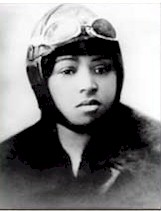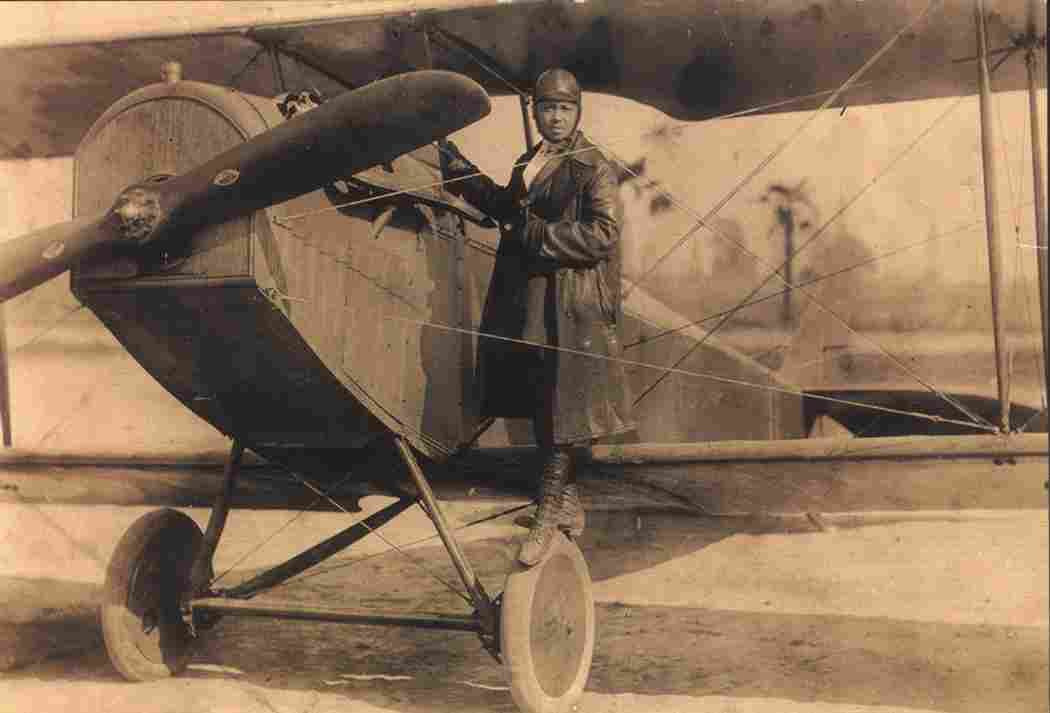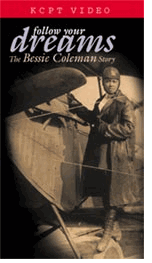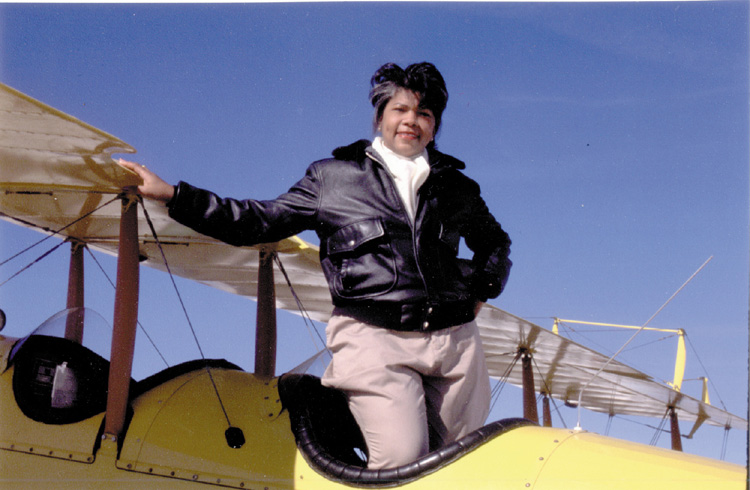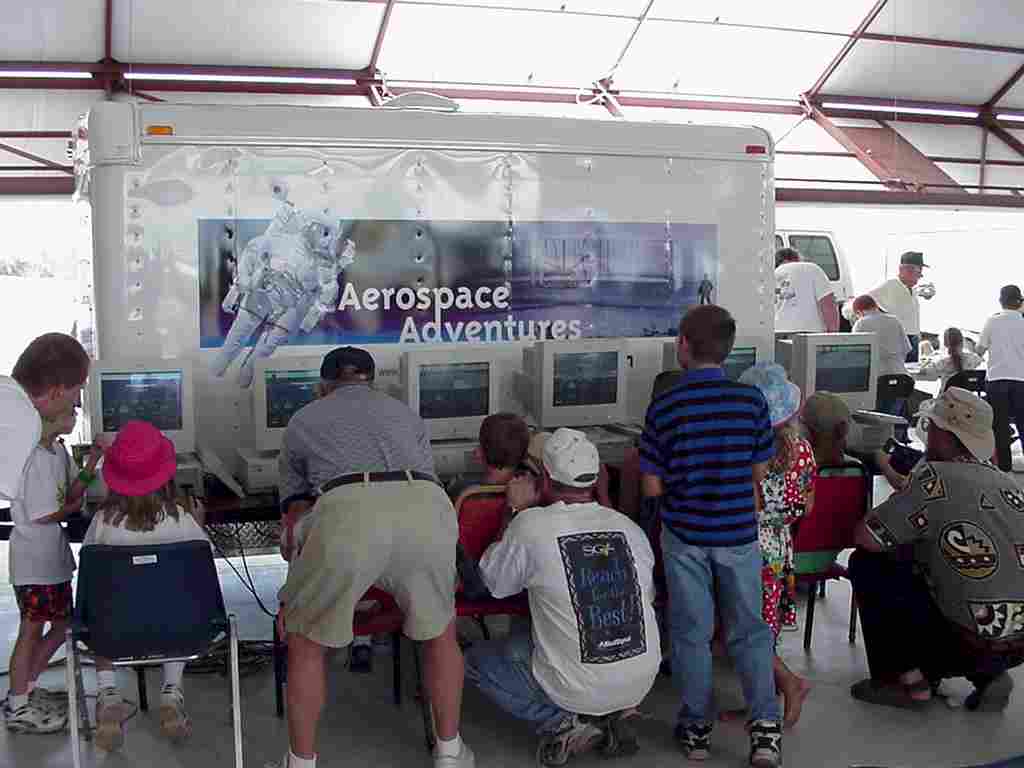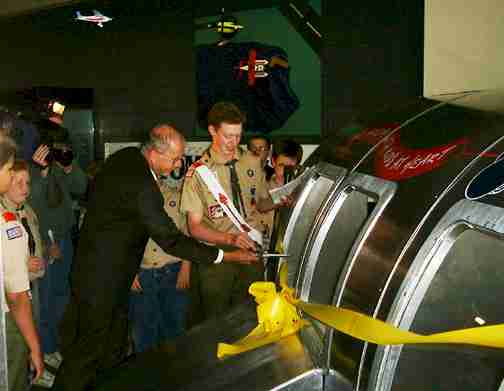
"Promoting and Supporting General Aviation and the Public's Understanding of
it"
www.wolf-aviation.org
FOR IMMEDIATE RELEASE
Contact for Media Inquiries: Rol Murrow
mail@wolf-aviation.org
More Dreams, More Awards from the Wolf Aviation Fund
Grants and Website Support Projects Benefiting or Promoting General Aviation
Philadelphia, Pennsylvania, July 30, 2001
Several hundred enraptured school children sit on the edges of their seats in a darkened auditorium in Kansas City, listening spellbound. Sandra Campbell, in flying helmet and goggles, stands in a pool of light on the stage and recreates for them the exciting story and persona of Bessie Coleman - the first African-American woman to win her wings as an aviator. Sandy's show "Follow Your Dreams" is the result of years of work researching Bessie's history and bringing it alive so young people in search of their own futures can become inspired to similarly reach for the greatness within themselves.
( Clean picture files are available for download
from site - these are low resolution drafts only:
click on picture or filename to download full resolution images
left = Suggested Caption: Bessie Coleman, Pioneering Aviatrix
file: bessie_pic_mod.jpg
right = Caption: Bessie Coleman, First African-American Woman
Aviator file: bessie_plane-pub.jpg )
In order to bring this amazing one-woman show to a wider audience, the Wolf Aviation Fund joined with others to help in creating a video tape for broadcast and distribution, produced through the facilities of KCPT, Kansas City's Public Broadcasting Service affiliate. And now an associated school curriculum is under development. You can read more about this project at the web site www.kcpt.org/bessie and you can learn all about the Wolf Aviation Fund at www.wolf-aviation.org.
"Follow Your Dreams" is only one of the many worthwhile efforts undertaken during this last year thanks in part to help from the Wolf Aviation Fund. We will describe more of them in this article, and especially would like to encourage you to consider whether you or someone you know has an appropriate project or activity that might benefit from the kind of information and support provided by the Fund.
Dr. David B. Manner and Dr. Kevin R. Kirtley believe that aviation safety demands that the common vacuum pump should be more reliable and when it fails it should do so gracefully. They have undertaken a research program with help from the Fund which may lead to an improved system, using new technology.
Chicago based airline pilot Sedgewick Hines used a prior grant to convert his outstanding book "Aviation Scholarships" into a free web resource for students and aspiring aviators to find scholarships and flight training grants. A supplemental grant is expanding the functionality of his site and helping applicants match their qualifications with the support available. View the site at www.avscholars.com.
Several aviation events received assistance for special needs related to their outreach effort. These included Discover Aviation Day in Las Vegas, Nevada; Tour Bradley Family Day (a well attended benefit for the Hole in the Wall Gang charity in Connecticut); and an awards event organized by the Mid-Atlantic Coalition to celebrate the accomplishments of more than 30 pilots who volunteered to serve their communities following devastating floods in New Jersey.
Robert Gardner, a security consultant, noticed that many smaller airports he visited suffered from the absence of even the most modest of measures to safeguard aircraft and equipment. He proposed to volunteer his services to research the problem and write a security manual, with some of his expenses supported by the Fund. When complete his book and associated web guidelines will be made available to airport operators and FBO's.
Two volunteer pilot organizations received small grants helping their outreach programs: Michigan-based Wings of Hope for partial completion costs for videos used in explaining their work to the public, and AirLifeLine Midwest of Illinois to make broadcast-quality dubs of their own videos, narrated by their volunteer spokesperson and noted broadcaster Willard Scott. Both groups will discuss their experiences in making and distributing these videos at a national conference of volunteer pilot groups, helping all groups improve their missions of service to those in need.
Gordon Hoff, a nationally known educator who has won numerous awards for his steadfast work on behalf of aviation education programs, asked for seed grant help in building support for a new National Center for Aircraft Technicians. The Center will serve as a catalyst for new training programs, certifications, and recruitment efforts for avionics technicians as a means to address current skill and labor shortages. Many organizations have partnered in its genesis, including Minneapolis Community and Technical College (the grant recipient) and the Aircraft Electronics Association; with additional support from the Federal Aviation Administration, Professional Aviation Maintenance Association, Signature Flight Support, Elliott Aviation, Duncan Aviation, Gulfstream, and many others.
Also related to aviation education is a follow-on grant proposal from educator Gordon Schimmel, the Chairman of the Aviation Education Committee of the Academy of Model Aeronautics. His prior grant supported the development of a rich curriculum and associated video program for "Inventing Flight," a major project celebrating the accomplishment of the Wright Brothers. The new grant supports additional work, including field tests by teachers and revisions so the materials can be used in classrooms nationwide as part of the Centennial of Flight events.
Another accomplished educator, James Brough of New Hampshire, had won a Christa McAuliffe Sabbatical to allow him to dedicate himself for a year teaching children in classrooms in the state about aviation and aerospace. He won a Wolf Aviation Fund grant to cover extra expenses needed to travel farther and to more school districts during his year of service. Others with educational programs included the Flying 36 Aeronautical Group in Santa Clara County, California, with their in-school effort called "A Student Introduction to Aviation and Flight," the Kiddie Hawk Air Academy for additional support for a portable mechanical flight simulator, and Aerospace Adventures in Education, a group which operates a statewide educational outreach program in Colorado.
Sarah Brown had a different idea: she is a home-schooled student who is busy building a Dakota Hawk homebuilt aircraft and learning to fly, with support from friends, family, and local businesses. She asked for help telling others about her project so other home-schooled children might be inspired to take on similarly challenging projects.
Caroline D'Otreppe and Mark Holloway of the New England Air Museum used their grant to help start SOAR - the Student Outreach Aviation Resource. They partnered with all the school districts surrounding the museum and a regional educational planning organization and developed a curriculum and associated activities relating aviation and aerospace to the schools' social studies curricula. The museum serves as a central resource showing how aviation impacts the schools' communities and their economies.
Two grants are being used to support the work of universities and their students. Andrew J. Novobilski, Associate Professor of Computer Science at the University of Tennessee at Chattanooga proposed working with his colleague Associate Professor Joseph D. Dumas II and a team of students to develop a new open-source virtual reality flight simulation program at the school's Challenger Center. Following development the project will be easily and freely adaptable for use in schools and museums elsewhere, At Oklahoma State University Dr. Danny Benbassat is using a grant to study accidents that occur in the landing flare phase of flight. Such occurrences appear to be underreported and poorly understood, and it is hoped recommendations can be developed that will enhance safety and reduce the costs of flying.
"We are often asked by someone if they should write a grant proposal," says Rol Murrow, the Fund's Executive Director. "Those without experience sometimes think it takes a special skill, or that they don't have a chance. First, note that most of our grants are awarded to first-timers. And we always say we can't prejudge an idea until we see a proposal, because we need to send it around to our reviewers. It is really up to the individual to review our guidelines and decide whether to write. But one thing is certain - if someone with a great project does not write a proposal then he or she won't get a grant!"
"And there are other reasons to write one," he continues. "Even if some proposals aren't funded we may be able to point the applicants in the right direction or refer them to others. Finally, once they have written a proposal then they have it and can send it to others for consideration, too."
A very recent award is a most fitting one with which to end this story. Earlier this year Corey Rennell, an Eagle Scout from Anchorage, Alaska, asked for help with a project he called FunAir. Remembering the hours he spent wandering through sterile airline terminals as a young child, he wanted to build an aviation-oriented playscape for children waiting for flights in Anchorage's brand new airline terminal. In his own words from his proposal, "My question is, why can't a boring layover for a child turn into an educational journey exploring nature, science, technology, aviation, and the realm of the imagination?"
His grant enabled him to answer his own question, build his airplane-shaped activity center, and open it at an inauguration ceremony on July 26, attended by airport officials, aviation organization representatives, family, and friends. As you might imagine, doing something to help this kind of dream come true, and in turn to inspire more such dreams in the future, is just the kind of effort envisioned by Abby and Connie Wolf, the Founders of the Wolf Aviation Fund!
Awards given by the Fund support a wide spectrum of proposals fostering and promoting general aviation and its value to society. Grants range from several hundred to ten thousand dollars. The year 2001 program is well under way and the Wolf Aviation Fund hopes to receive many appropriate proposals for consideration for funding.
The fastest and preferred way for one to apply for grants is to visit the Fund's website at www.wolf-aviation.org and to review the Grants pages. For those without web access the guidelines may be requested via electronic mail sent to mail@wolf-aviation.org or by writing the Wolf Aviation Fund, Grant Administration, 149 Walnut Street, Willimantic, CT 06226. And for all who love aviation, note that the website is dedicated to the promotion and advancement of general aviation and provides many pages of fascinating and useful information.
--- END --
This release and photos may be downloaded from the Wolf Aviation Fund website and used for your treatment of
this story; photos provided with permission of Aerospace Adventures in
Education, Sandra Campbell, KCPT,
John Dow, and/or Tom George.
Access this release at: www.wolf-aviation.org/pr0107a.htm
( Clean picture files are available for download
from site - these are low resolution drafts only:
click on picture or filename to download full resolution images
left = Caption: Follow Your Dreams
Videotape from KCPT file: Bess-video-cvr.gif
right = Caption: Sandra Campbell portrays Bessie Coleman in "Follow
Your Dreams" file: bessie-sandra_campbell-pub.jpg
Please
credit right photo as Photo by John Dow
left = Caption: Airport Manager Mort Plumb
and Wolf Fund Award Winner Corey Rennell Cut the Ribbon;
July 26 Dedication of FunAir playscape at Anchorage International Airport
file = funair ribbon cutting2.jpg
(FunAir Photo Credit: Photo by Tom George)
right = Caption: Colorado
Children Enjoy Aerospace Adventures in Flight file: aero-adv-MVC-008F.JPG
)
related pages:
To Grants Program Page - Our Grant Guidelines and About Other Grants
To Home Page - Read All About the Wolf Aviation Fund
To Press Releases ("What We Do" Page)
